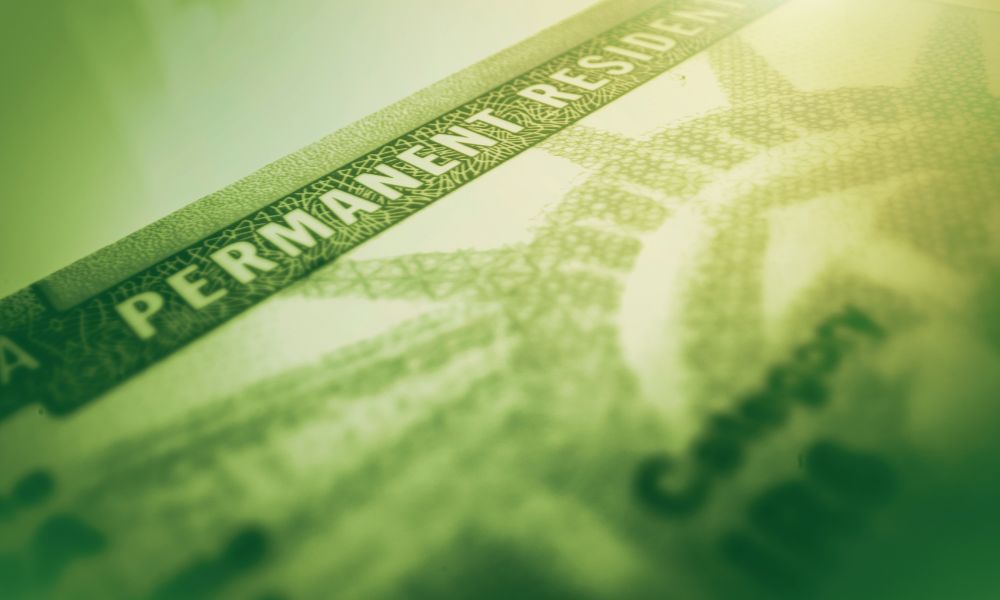Welcome to the world of Thai Permanent Residency! In this article, we delve into the details and requirements of obtaining permanent residency in Thailand. Discover the benefits, eligibility criteria, and the step-by-step process to make your dream of settling down in the Land of Smiles a reality. Let’s explore everything you need to know about Thai Permanent Residency.
Eligibility criteria for obtaining permanent residency in Thailand
To be eligible for permanent residency in Thailand, applicants must meet certain requirements such as having resided in the country for a minimum of three consecutive years with a non-immigrant visa, having a work permit or being married to a Thai national, and demonstrating good behavior and character. Applicants must also meet specific financial criteria and have a certain level of proficiency in the Thai language.
Processing time for Thai permanent residency applications
The processing time for Thai permanent residency applications can vary depending on various factors such as the volume of applications being processed at the time, the completeness of the application, and any additional documentation required. On average, it can take anywhere from six months to two years to receive a decision on a permanent residency application.
Benefits and privileges of being a permanent resident in Thailand
Being a permanent resident in Thailand comes with several benefits and privileges. Permanent residents are allowed to live and work in Thailand without needing to obtain additional permits or visas. They are also entitled to own property, access healthcare services, and enjoy certain tax benefits. Additionally, permanent residents have more rights and protections compared to foreigners on temporary visas.
Differences between a Thai permanent residence visa and a regular tourist visa
A Thai permanent residence visa grants individuals the right to reside permanently in Thailand without needing to renew their visa or leave the country periodically. In contrast, a regular tourist visa is only valid for short-term stays and needs to be renewed after its expiration. Permanent residents also have more rights and privileges compared to those on tourist visas.
Restrictions and limitations for permanent residents in Thailand
While there are numerous benefits associated with being a permanent resident in Thailand, there are also some restrictions and limitations that apply. Permanent residents cannot participate in political activities or hold certain government positions. They may also be subject to periodic reporting requirements or other obligations imposed by immigration authorities.
Application process for a Thai permanent residence visa
The application process for a Thai permanent residence visa involves gathering and submitting various documents, including personal identification, proof of residency, financial statements, and other supporting evidence. Applicants must also complete an interview and language proficiency test. The application is then reviewed by the Immigration Bureau, and a decision is made based on the applicant’s eligibility and suitability for permanent residency.
Applying for permanent residency in Thailand as the spouse of a Thai citizen
Spouses of Thai citizens are eligible to apply for permanent residency in Thailand. The application process requires providing proof of marriage to a Thai national, demonstrating financial stability, meeting language proficiency requirements, and showing a genuine relationship with the Thai spouse. The application is reviewed by immigration authorities, and if approved, the foreign spouse will be granted permanent residency.
Financial requirements and investments for Thai permanent residency
To qualify for permanent residency in Thailand, applicants must meet certain financial requirements. This includes having a minimum amount of funds deposited in a Thai bank account or making investments in designated industries or government bonds. The specific financial criteria can vary depending on individual circumstances and are subject to change.
Required documents and supporting evidence for a successful Thai permanent residency application
When applying for Thai permanent residency, applicants must provide various documents such as their passport, birth certificate, marriage certificate (if applicable), proof of residence in Thailand, employment history or business registration documents (if applicable), financial statements or investment records (if applicable), police clearance certificate from their home country, medical certificates, and any other supporting evidence that may be required.
Renewal process for Thai permanent residency visas
Permanent residents in Thailand need to renew their visa every five years. The renewal process involves submitting updated documentation such as proof of continued residence in Thailand, updated financial statements or investment records (if applicable), police clearance certificates from both Thailand and the home country (in some cases), medical certificates (in some cases), and any other supporting evidence requested by immigration authorities.
Professional and educational qualifications that can enhance chances of obtaining permanent residency in Thailand
Having professional or educational qualifications can enhance an individual’s chances of obtaining permanent residency in Thailand. Holding a high-level position, having specialized skills, or possessing advanced degrees in fields that are in demand in Thailand can increase the likelihood of approval for permanent residency.
Sponsoring family members for residency as a Thai permanent resident
As a Thai permanent resident, individuals have the ability to sponsor their family members for residency in Thailand. This includes spouses, children, and parents. The application process involves providing documentation to prove the relationship and meeting financial requirements to support the sponsored family members.
Working or starting a business in Thailand as a permanent resident
Permanent residents in Thailand have the right to work and start businesses without needing additional permits or visas. They can engage in any legal occupation or establish their own businesses. However, certain professions may require additional licenses or qualifications.
Language requirements for obtaining permanent residency in Thailand
Language proficiency is an important factor when applying for Thai permanent residency. Applicants are required to pass a language proficiency test conducted by the Immigration Bureau to demonstrate their ability to communicate effectively in Thai.
Fees associated with applying for and maintaining Thai permanent residency
There are fees associated with applying for and maintaining Thai permanent residency. These fees can vary depending on individual circumstances and may include application fees, visa fees, processing fees, and renewal fees. It is important to check with the Immigration Bureau for the most up-to-date fee schedule.
Conclusion
In conclusion, obtaining permanent residency in Thailand offers numerous benefits and privileges such as the right to live and work in the country without restrictions. However, applicants must meet specific eligibility criteria, including a minimum residency period, financial requirements, and language proficiency. The application process can take several months to years, and there are fees associated with applying for and maintaining permanent residency. Overall, Thai permanent residency provides individuals with long-term stability and opportunities in Thailand.




